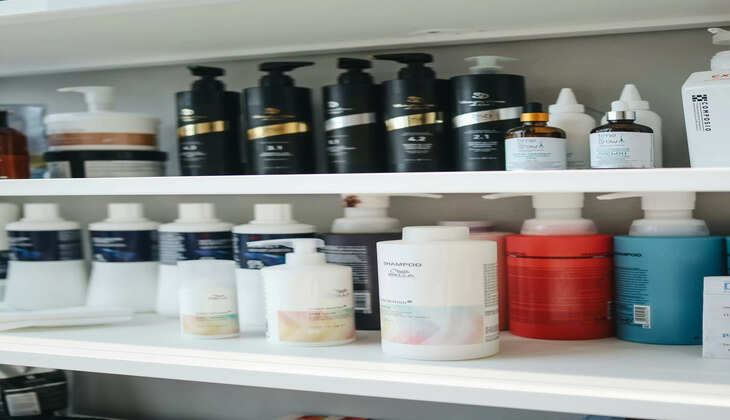Conditioner Useful Or Not?
Updated: May 28, 2024, 11:52 IST

Using conditioner is beneficial for most hair types as it helps maintain hair health, improve manageability, and protect against damage. Here are some reasons why conditioner is useful:
Benefits of Using Conditioner
-
Moisturizes Hair
- Hydration: Conditioner provides essential moisture to the hair, which is crucial for maintaining its softness and preventing dryness and brittleness.
-
Improves Hair Texture
- Smoothness: Conditioners smooth the hair cuticle, making hair feel softer and look shinier.
- Detangling: It helps detangle hair, reducing knots and making it easier to comb through, thus preventing breakage.
-
Reduces Frizz
- Humidity Protection: Conditioners can help manage frizz by sealing the hair cuticle, which reduces the hair's ability to absorb moisture from the air.
-
Adds Shine
- Light Reflection: A well-conditioned hair cuticle reflects light better, making hair appear shinier and healthier.
-
Protects Against Damage
- Barrier Formation: Conditioners form a protective layer around the hair shaft, guarding it against damage from environmental factors, heat styling, and chemical treatments.
-
Maintains Color-Treated Hair
- Color Retention: Specialized conditioners for color-treated hair help maintain color vibrancy and prevent fading.
How to Use Conditioner
-
Choose the Right Conditioner
- Hair Type: Select a conditioner suitable for your hair type (e.g., dry, oily, fine, curly, color-treated).
- Ingredients: Look for beneficial ingredients such as natural oils, proteins, and vitamins.
-
Application
- Amount: Use an appropriate amount based on your hair length and thickness.
- Distribution: Apply the conditioner primarily to the mid-lengths and ends of your hair, avoiding the scalp if you have oily hair. For dry hair, a light application to the scalp can help with hydration.
-
Leave-In Time
- Duration: Leave the conditioner in your hair for the recommended time (usually a few minutes) to allow it to penetrate and nourish the hair.
-
Rinse Thoroughly
- Rinsing: Ensure you rinse out the conditioner thoroughly to avoid residue buildup, which can weigh down your hair and make it look greasy.
Types of Conditioners
-
Rinse-Out Conditioners
- Everyday Use: Commonly used after shampooing, these conditioners are applied and rinsed out after a few minutes.
-
Leave-In Conditioners
- Leave-On Protection: These are not rinsed out and provide ongoing moisture and protection throughout the day.
-
Deep Conditioners/Masks
- Intensive Treatment: Used weekly or bi-weekly, deep conditioners offer intensive hydration and repair, left on the hair for a longer period before rinsing.
-
Co-Wash Conditioners
- Cleansing Conditioners: These can be used instead of shampoo, especially beneficial for curly or coily hair types that require extra moisture.
Considerations
-
Hair Type and Needs
- Customization: Your hair type and specific needs (e.g., damage repair, moisture retention) will determine the best type of conditioner for you.
-
Potential Downsides
- Product Build-Up: Overuse or improper rinsing of conditioner can lead to build-up, making hair feel heavy and greasy.
- Allergic Reactions: Some ingredients in conditioners can cause allergic reactions or scalp irritation. Always check the ingredient list and do a patch test if you have sensitive skin.
In conclusion, using a conditioner can be very beneficial for maintaining healthy, manageable, and beautiful hair. Choosing the right product for your hair type and using it correctly can make a significant difference in your hair care routine.
